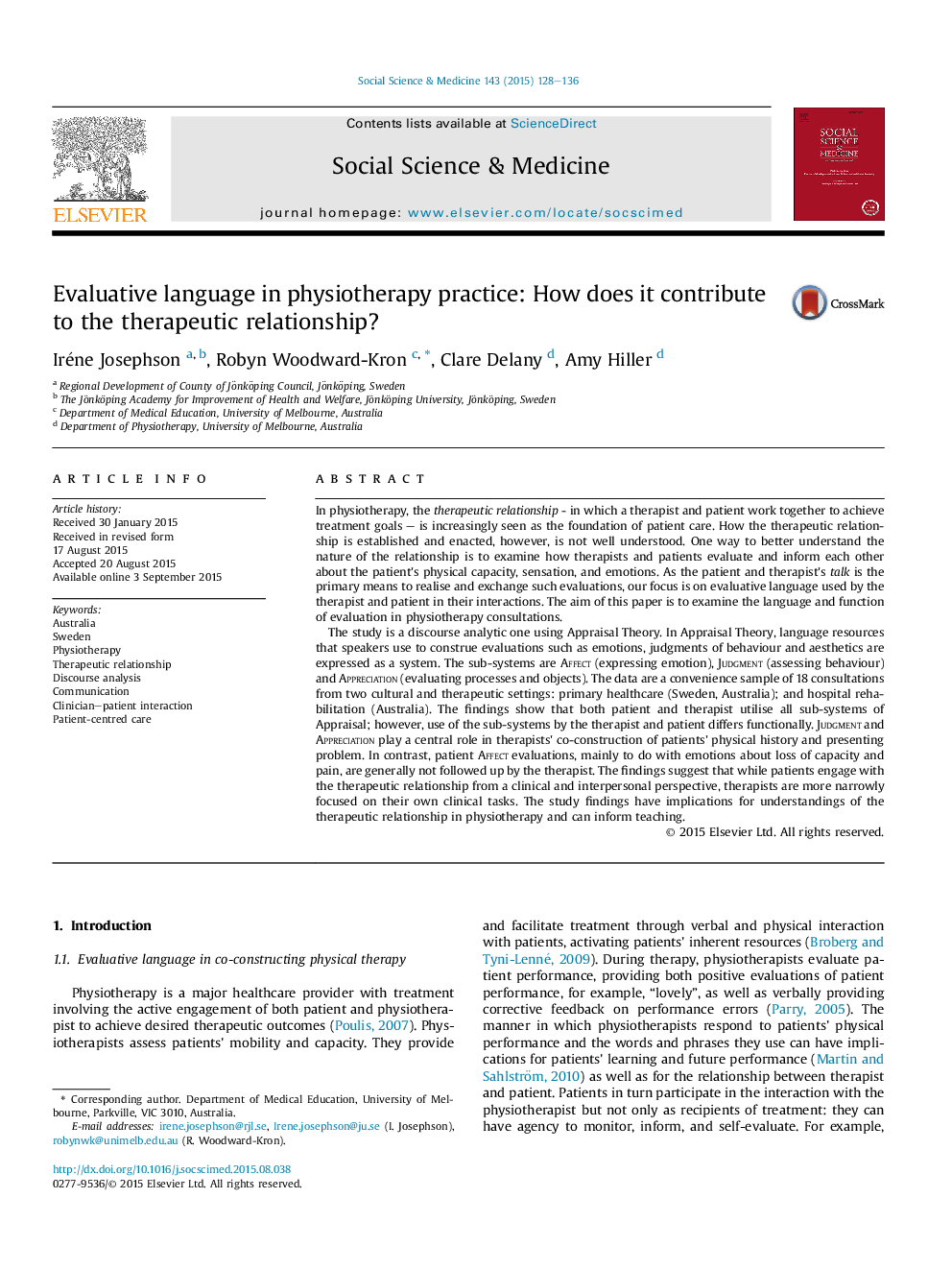| Article ID | Journal | Published Year | Pages | File Type |
|---|---|---|---|---|
| 7331793 | Social Science & Medicine | 2015 | 9 Pages |
Abstract
The study is a discourse analytic one using Appraisal Theory. In Appraisal Theory, language resources that speakers use to construe evaluations such as emotions, judgments of behaviour and aesthetics are expressed as a system. The sub-systems are Affect (expressing emotion), Judgment (assessing behaviour) and Appreciation (evaluating processes and objects). The data are a convenience sample of 18 consultations from two cultural and therapeutic settings: primary healthcare (Sweden, Australia); and hospital rehabilitation (Australia). The findings show that both patient and therapist utilise all sub-systems of Appraisal; however, use of the sub-systems by the therapist and patient differs functionally. Judgment and Appreciation play a central role in therapists' co-construction of patients' physical history and presenting problem. In contrast, patient Affect evaluations, mainly to do with emotions about loss of capacity and pain, are generally not followed up by the therapist. The findings suggest that while patients engage with the therapeutic relationship from a clinical and interpersonal perspective, therapists are more narrowly focused on their own clinical tasks. The study findings have implications for understandings of the therapeutic relationship in physiotherapy and can inform teaching.
Keywords
Related Topics
Health Sciences
Medicine and Dentistry
Public Health and Health Policy
Authors
Iréne Josephson, Robyn Woodward-Kron, Clare Delany, Amy Hiller,
